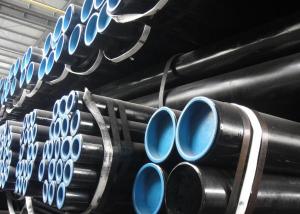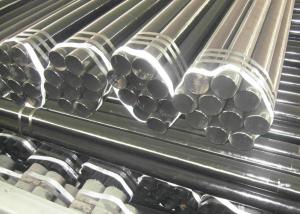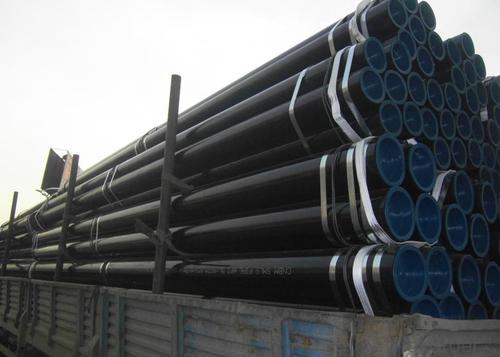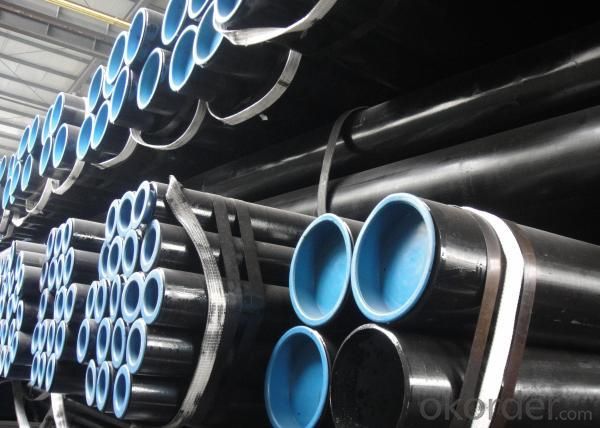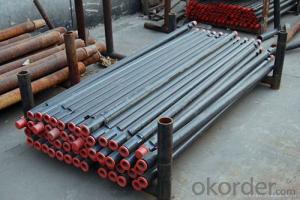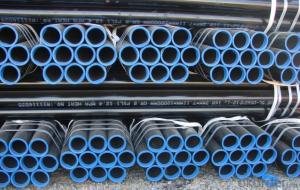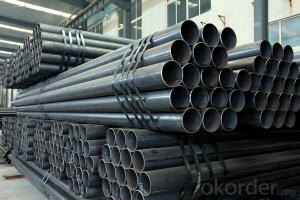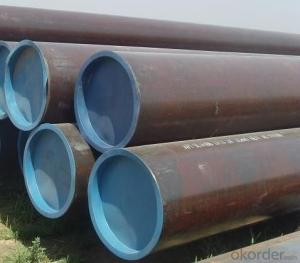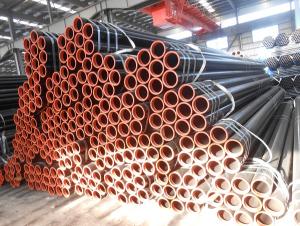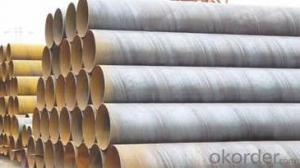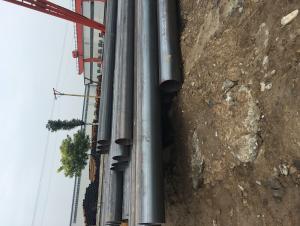Line Pipe
- Loading Port:
- China Main Port
- Payment Terms:
- TT or LC
- Min Order Qty:
- 20MT m.t.
- Supply Capability:
- 5000 Tons Per Month m.t./month
OKorder Service Pledge
OKorder Financial Service
You Might Also Like
Specifications of Line pipe | |||||||||||||||||||||||||||||||||||||||||||||||||||||||||||||||||||||||||||||||||||||||||||||||||||||||||||||||||||||||||||||||||||||||||||||||||||||||||||||||||||||||||||||||||||||||||||||||||||||||||||||||||||||||||||||||||||||||||||||||||||||||||||||||||||||||||||||||||||||||||||
Applications It is used for conveying gas,water,and petroleum of both the oil and natural gas industries. Packaging & Delivery Each bundles pipes will be bundled with 6-8 pcs steel strips and with shipping marks and 2 nylon strips 40-50 days delivery on china port upon receiving orinigal LC or prepayment.
| |||||||||||||||||||||||||||||||||||||||||||||||||||||||||||||||||||||||||||||||||||||||||||||||||||||||||||||||||||||||||||||||||||||||||||||||||||||||||||||||||||||||||||||||||||||||||||||||||||||||||||||||||||||||||||||||||||||||||||||||||||||||||||||||||||||||||||||||||||||||||||
- Q: What is the difference between carbon steel pipes and stainless steel pipes?
- The main difference between carbon steel pipes and stainless steel pipes lies in their composition. Carbon steel pipes are primarily made of iron and carbon, while stainless steel pipes contain iron, carbon, and a minimum of 10.5% chromium. This chromium content in stainless steel pipes creates a protective layer of chromium oxide on the surface, making them highly resistant to corrosion. On the other hand, carbon steel pipes are more susceptible to corrosion and require additional coatings or treatments to prevent rusting. Additionally, stainless steel pipes offer better heat resistance and can withstand higher temperatures compared to carbon steel pipes.
- Q: Can steel pipes be used for conveying chemicals?
- Yes, steel pipes can be used for conveying chemicals. Steel pipes are known for their high strength and durability, making them suitable for transporting various chemicals. Additionally, they are resistant to corrosion, which is crucial when dealing with corrosive substances. However, it is important to consider the specific type of chemical being transported and ensure that the steel pipes are compatible with it to avoid any chemical reactions or damage to the pipes.
- Q: Is the same specification seamless steel pipe more expensive than welded pipe?
- Seamless steel pipe having a hollow cross section, used as a conduit for conveying fluids, such as pipelines for transporting petroleum, natural gas, gas, water, and certain solid materials.
- Q: What are the different methods of inspecting steel pipes?
- There are several methods of inspecting steel pipes, including visual inspection, ultrasonic testing, magnetic particle testing, dye penetrant testing, radiographic testing, and eddy current testing.
- Q: Can steel pipes be used for geothermal applications?
- Yes, steel pipes can be used for geothermal applications. Steel is a durable and strong material that can withstand high temperatures and pressures typically found in geothermal systems. It is commonly used for drilling wells and transporting geothermal fluids, making it a suitable choice for geothermal applications.
- Q: Can steel pipes be used for petrochemical plants?
- Yes, steel pipes can be used for petrochemical plants. Steel pipes are commonly used in petrochemical plants due to their high strength, durability, and resistance to corrosion. They can handle high-pressure and high-temperature applications, making them suitable for transporting various chemicals and gases in petrochemical processes.
- Q: Can steel pipes be used for conveying abrasive slurries?
- Indeed, abrasive slurries can be effectively conveyed through steel pipes. The remarkable durability and strength of steel pipes render them highly suitable for the transportation of abrasive substances like slurries. Nevertheless, to guarantee prolonged service life and avert excessive deterioration, it is crucial to carefully choose the right grade of steel and take into account factors such as pipe thickness, lining choices, and flow velocity. Furthermore, the implementation of adequate maintenance and inspection protocols can play a pivotal role in promptly identifying and resolving any wear or corrosion issues that may arise with time.
- Q: What are the different sizes available for steel pipes?
- Steel pipes are available in a wide range of sizes, ranging from small diameter pipes typically used for plumbing purposes, to large diameter pipes used in industrial applications. These sizes can vary significantly depending on the specific requirements and intended use of the pipe, but common sizes include 1/2 inch, 3/4 inch, 1 inch, 2 inch, 4 inch, 6 inch, 8 inch, and 10 inch, among others.
- Q: How do steel pipes handle thermal expansion?
- Steel pipes handle thermal expansion by expanding and contracting with changes in temperature. The high thermal conductivity of steel allows it to transfer heat quickly, preventing excessive expansion. Additionally, the flexibility of steel allows it to absorb the expansion and contraction without compromising the integrity of the pipe.
- Q: Do steel pipes expand or contract with temperature changes?
- Steel pipes expand with temperature increases and contract with temperature decreases.
1. Manufacturer Overview
| Location | Hebei, China |
| Year Established | 1990 |
| Annual Output Value | Above 30 milionrmb |
| Main Markets | Germany; Japan;Korea; America; Brasil; Canada |
| Company Certifications | ISO9001:2000 ; API |
2. Manufacturer Certificates
| a) Certification Name | |
| Range | |
| Reference | |
| Validity Period |
3. Manufacturer Capability
| a) Trade Capacity | |
| Nearest Port | Tianjin; Qingdao |
| Export Percentage | 50% |
| No.of Employees in Trade Department | Above 10 |
| Language Spoken: | English; Chinese |
| b) Factory Information | |
| Factory Size: | 8,5000square meters |
| No. of Production Lines | Above 10 |
| Contract Manufacturing | OEM Service Offered; Design Service Offered |
| Product Price Range | High Average |
Send your message to us
Line Pipe
- Loading Port:
- China Main Port
- Payment Terms:
- TT or LC
- Min Order Qty:
- 20MT m.t.
- Supply Capability:
- 5000 Tons Per Month m.t./month
OKorder Service Pledge
OKorder Financial Service
Similar products
Hot products
Hot Searches
Related keywords

